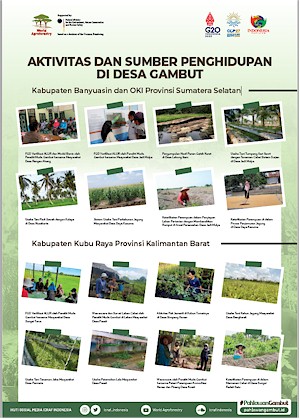Abstract in English:
Electrical energy becomes a priority for Indonesia because there are still many areas that have not been electrified especially in rural areas. Bioenergy as one of the energy fulfillment solutions for new renewable energy source becomes one of the focus for the development of new renewable energy in Indonesia. Oil palm, as an indigenous resource in some parts of Indonesia, can be used as a bioenergy source. Utilization of bioenergy especially for the electricity needs (biopower) can be sourced from the waste palm oil Palm Oil Mill Effluent (POME). The purpose of this research is to analyze how the opportunity of POME converted to biopower can meet the electricity needs of the rural community and want to know how biopower from POME could be able to grow the economy in rural society. The research used the descriptive qualitative-quantitative method and in-depth interview. The results show that bioenergy can present an incentive to foster the dynamic movement of the rural development. By using indigenous resources in each region as a bioenergy feedstock, the government’s spirit to build Indonesia’s electric sovereignty finds a bright spot. In addition, to provide economic benefits through savings and additional people’s income, this activity is socially able to reduce conflicts due to pollution, to foster the moving forward spirit especially for the next generation, and to suppress negative externalities that were previously as the environmental responsibility.
Download:
DOI:
https://doi.org/10.22500/sodality.v5i3.19392Altmetric score:
Dimensions Citation Count:
Publication year
2017
Authors
Astriani Sudaryanti, D.; Fauzi, A.; Dharmawan, A.H.; Putri, E.I.K.
Language
Indonesian
Keywords
bioenergy, economic impact, oil palms
Geographic
Indonesia
























